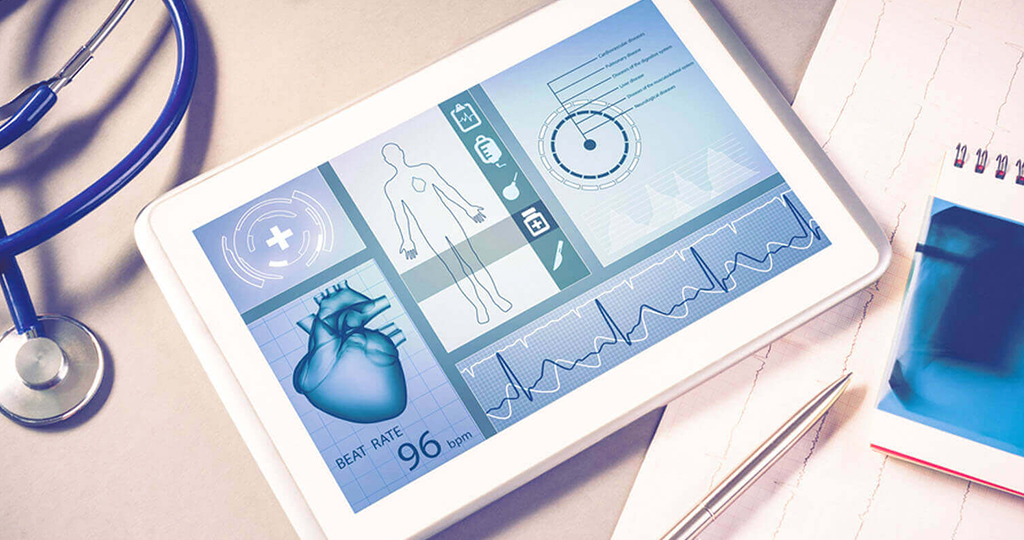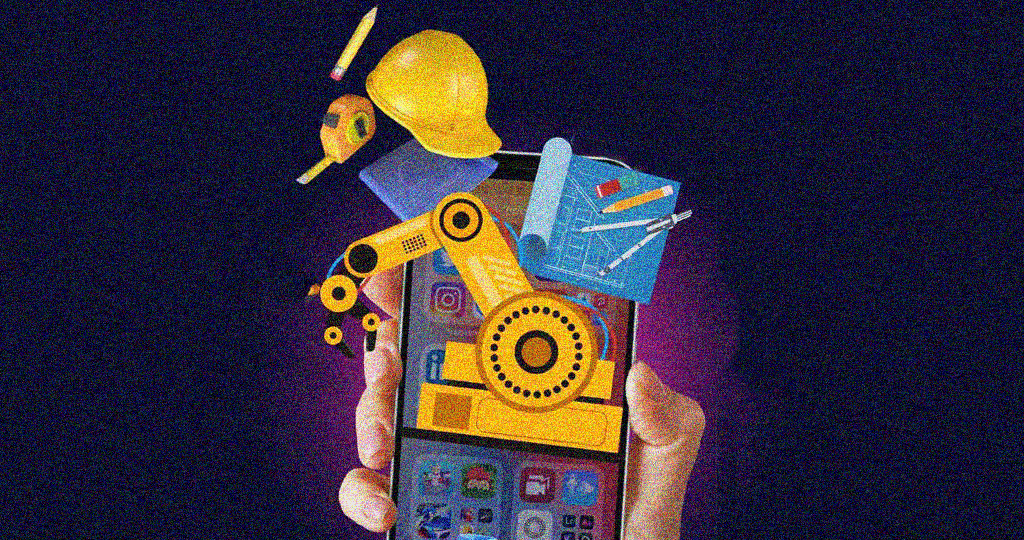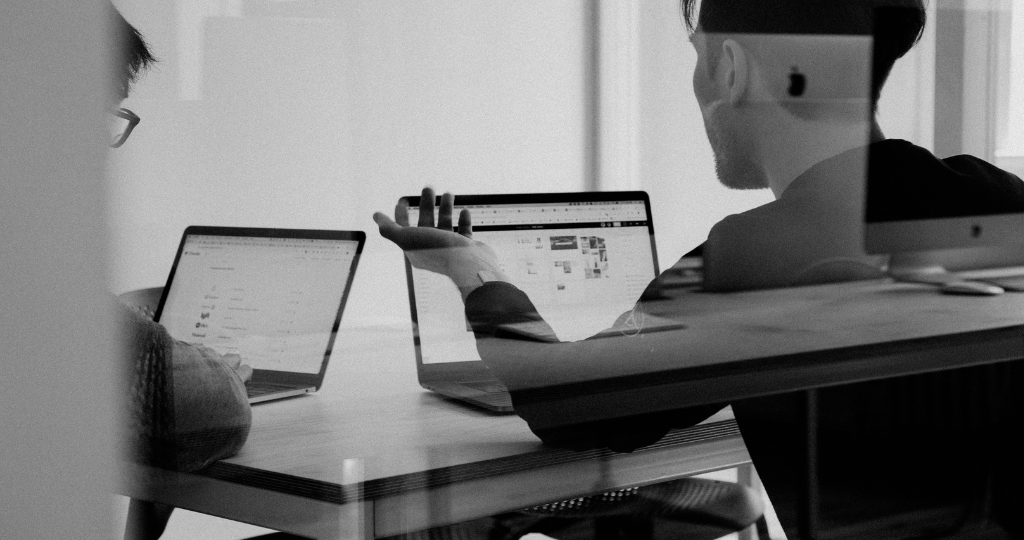Key Takeaways
The healthcare industry is witnessing a significant transformation through the adoption of healthcare mobile apps. These apps, developed by healthcare app development companies, are revolutionizing patient care and engagement.
Medical mobile app development is reshaping the healthcare landscape by offering a wide range of solutions, from appointment scheduling to remote diagnosis, to enhance patient accessibility and well-being.
To stay competitive in the evolving healthcare app market, it's crucial to partner with a healthcare app development company that can deliver cutting-edge services.
Skilled healthcare app developers play a pivotal role in creating innovative solutions. They use technologies like AI, AR/VR, big data, chatbots, cloud computing, IoT, PGHD, RPM, telemedicine, and wearable devices to improve healthcare delivery and patient outcomes.
The healthcare industry has indeed experienced significant technological and infrastructural advancements as people prioritize their health. However, despite these strides, there are still challenges in efficiently serving all healthcare users, as exemplified during the COVID-19 outbreak. In response to these challenges, there has been a noteworthy shift towards the adoption of digital technologies in healthcare systems worldwide since the outbreak. In 2023, healthcare mobile app development continues to play a pivotal role in reshaping the industry. These apps cover a wide spectrum of healthcare needs, ranging from scheduling doctor appointments, monitoring patient health conditions, and diagnosing health issues, to providing remote medical care.
The healthcare sector, much like other industries, is evolving rapidly thanks to technological advancements. These innovations have proven beneficial to both healthcare facilities and patients. Notably, patients can now conveniently describe their symptoms through mobile apps, facilitating remote diagnosis by medical practitioners. According to a recent study, the digital health market is projected to reach an impressive $1,041 billion by 2030, with a remarkable annual growth rate of 21.6%.
This growth has led to a substantial surge in demand for healthcare software in recent years. For healthcare app developers staying updated on mobile healthcare app development trends for 2023 is of paramount importance. To succeed in this rapidly expanding market, it's crucial to partner with the best healthcare app development company to deliver cutting-edge healthcare app development services that address the evolving needs of the healthcare industry and its tech-savvy users.
What is a Healthcare App?
A healthcare app, developed through medical mobile app development, is a dedicated software solution optimized for mobile devices. These applications, part of Healthcare Mobility Solutions, are crafted to serve a range of healthcare functions. From streamlining medical appointments to monitoring health conditions, they enhance patient engagement and accessibility. Healthcare apps also offer valuable health information and support fitness goals, utilizing the convenience of mobile technology to promote overall well-being.
Top 10 Healthcare Application Development Trends in 2023
People are looking for quick, secure, and practical services as they become more tech-savvy. The greatest healthcare applications address pressing and relevant problems for the user. The top 10 tech trends in healthcare app development for businesses are as follows:
1. Artificial Intelligence (AI) & Machine Learning (ML)
Our understanding of modern healthcare delivery is undergoing a significant transformation due to the advent of AI and ML technologies. These remarkable advancements empower computers to think, learn, and mimic human behavior, enabling them to undertake diverse clinical and operational tasks within the healthcare domain. The adoption of AI and ML-based mobile app solutions in healthcare, including healthcare web apps, is driven by several key factors. These include the pressing need to reduce healthcare costs, the complexity of healthcare datasets, and the rising demand for enhanced healthcare services, driven by the gap between available health personnel and the increasing number of patients.
2. AR/VR
The major effects of AR/VR in healthcare mobile apps will be to improve practitioners’ processes through virtual environments, helping patients get sound medical advice even in a virtual environment. Virtual reality settings are known to assist patients in recovering from trauma more quickly and easily. On the other hand, AR / VR technology can aid surgeons in performing surgeries with more precision.
3. Big Data
The healthcare sector generates vast quantities of data, with big data serving as a pivotal component within Electronic Health Records (EHR). This encompasses critical patient information such as demographics, progress notes, and medication histories, all vital for delivering comprehensive care. Big data analytics services play an indispensable role in public health by enabling the identification of trends and the prevention of burgeoning health crises. For instance, in pursuit of the ultimate goal of conquering cancer, the practice of data mining in healthcare involves harnessing data from countless cancer patients. This process yields profound insights, fosters a new level of understanding, and advances research methodologies to drive progress in the fight against cancer.
4. Chatbot
Numerous chatbot use cases, specifically tailored for the healthcare sector, hold the potential to revolutionize healthcare services, making them more intuitive, responsive, and personalized. Chatbots have already elevated the bar for customer support and service. By applying similar principles, healthcare organizations can leverage mobile apps to deliver tailored and immediate healthcare services with the assistance of chatbots.
5. Cloud Computing
One crucial aspect of medical services involves the collection and maintenance of data. Healthcare providers often face challenges in managing the substantial volume of data, particularly during times of pandemics, epidemics, or endemics when there is a sudden surge in patient information across various facilities and sometimes even different locations. Integrating electronic medical records (EMR) and electronic health records (EHR) with cloud-based mobile apps is a pivotal step in simplifying access to patient records, insurance policies, medical bills, and other essential data. This integration, which is facilitated by healthcare mobile app development, streamlines data management, ensuring efficient healthcare operations even during unprecedented healthcare challenges.
6. Internet of Things (IoT)
The Internet of Things (IoT) plays a crucial role in the real-time tracking of medical equipment and the monitoring of patients' medical records. Through the utilization of IoT devices, doctors can access a continuous stream of information regarding their patients' health. IoT sensors assist in scheduling maintenance proactively, ensuring timely and practical servicing to prevent unplanned equipment failures. Healthcare apps based on IoT technology have the potential to substantially enhance patient well-being and bolster the overall performance of the healthcare system.
7. Patient-Generated Health Data (PGHD)
In contemporary times, healthcare app developers have integrated features within healthcare apps that request patients to input their medical data, which typically encompasses their medical history, current symptoms, and various aspects of their health. Patients can supplement any missing health information through the use of Patient-Generated Health Data (PGHD). Healthcare software, designed by these skilled healthcare app developers, utilizes these medical records to build a comprehensive picture of the patient's health.
8. Remote Patient Monitoring (RPM)
Leveraging RPM apps beyond clinical settings plays a pivotal role in gathering patient data. Patients monitor their daily health metrics, and this information is seamlessly integrated into a comprehensive database. RPM-based mobile apps offer significant advantages to patients who face challenges in making frequent hospital visits. In this context, healthcare application development proves instrumental. The pertinent healthcare provider or medical expert can then review the data submitted to the RPM applications. Remarkably, this can be achieved without the need for in-person interactions, as they can remotely access and assess patient data.
9. Telemedicine
Medical app development has played a pivotal role in reshaping the healthcare sector by enabling telemedicine. This advancement continues to gain traction as these apps facilitate contactless healthcare procedures, making it considerably more manageable for healthcare providers to respond to incidents like the COVID-19 pandemic.
10. Wearable Devices
Over the past few years, wearable technology has gained popularity. This technology is now influencing our daily lives, from Apple smartwatches to FitBits designed for specific sports. Wearable devices have a variety of healthcare applications, including cutting-edge ones like wearable ECG monitors and diabetes monitoring equipment. The rapid adoption of wearable technology presents more opportunities for healthcare practitioners to create medical apps with device connections. These tools then collect crucial data, including blood pressure, heart rate, blood sugar level, and more, to enable doctors to better understand their patients’ health.
Wrapping Up:
In today's rapidly evolving healthcare landscape, healthcare mobile apps have become the new standard, revolutionizing patient-physician communication and enhancing overall effectiveness. These innovative solutions empower individuals to take control of their health and well-being while facilitating seamless interactions with healthcare providers. Among the industry leaders in this transformative journey is Way2Smile Solutions, a renowned mobile app development company in Dubai specializing in cost-effective healthcare mobile app solutions.
Way2Smile Solutions stands at the forefront of medical app development and healthcare app development, offering unparalleled expertise and cutting-edge solutions to cater to the evolving needs of the healthcare sector. Our team of dedicated healthcare app developers is committed to delivering top-tier applications that prioritize user experience, security, and data accuracy. With Way2Smile Solutions as your trusted partner, you gain access to the best in healthcare app development services.







